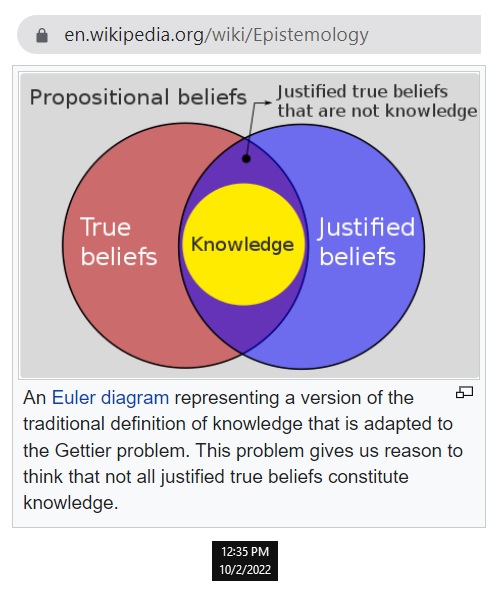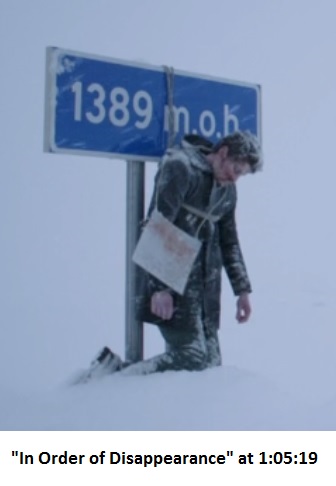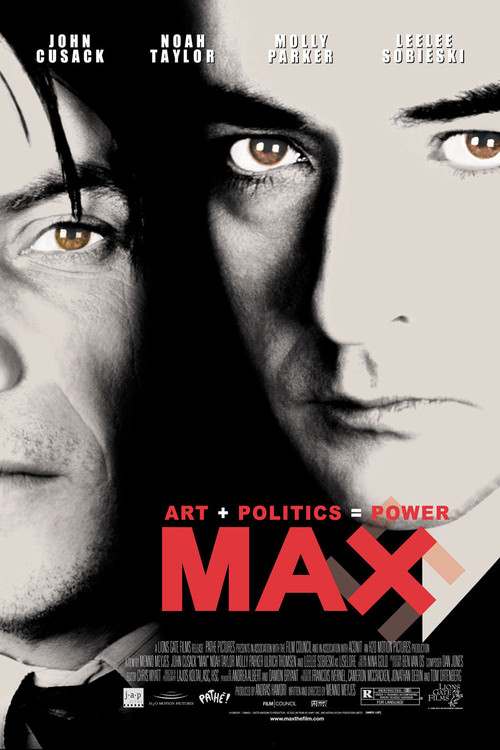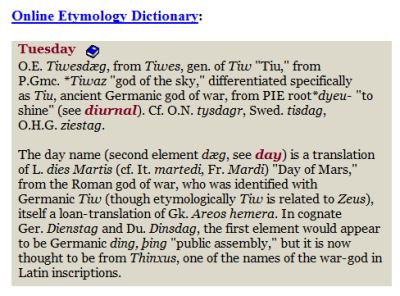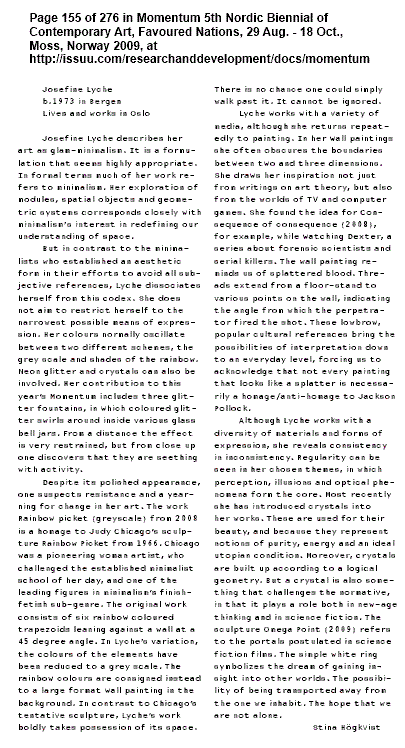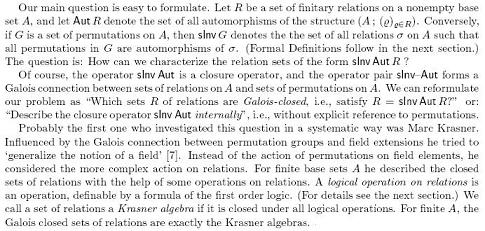
Sunday, October 2, 2022
Epistemology in Norway
Sunday, August 4, 2019
Saturday, April 26, 2014
Friday, November 9, 2012
Norway High Chair
This post was suggested by today's previous post,
"Bali High Chair," that links to an empty chair award for
evangelical supporters of Mitt Romney, by Bauhaus style,
and by the example of Norwegian design shown below—
(Happy Frigg's Day to Josefine Lyche.)
Saturday, August 6, 2011
Norway Summer
(Continued from June 21)
Footnote to a new web page from the European Culture Congress—
Photo credit: Josefine Lyche, “The 2×2 Case (Diamond Theorem)
after Steven H. Cullinane”, 450 x 650 cm,
Tromsø Kunstforening, 2010, image courtesy: the artist.
Tuesday, June 21, 2011
Sunday, October 31, 2010
Diamond Theorem in Norway
Friday, October 18, 2024
Meme Wars: Girl Moss!

And then there is Kate Moss —
Sculpture of Kate Moss in Oslo mall.
More seriously . . . Hemingway moss —
|
"In the meantime we had found out how to beat the erosion of the fiesta and get away from the noise that was getting on the nerves of some of the more valued members of our group. It was to leave in the forenoon and drive up the Irati River above Aoiz and picnic and swim and then drive back in time for the bullfights. Each day we drove further up that lovely trout stream into the great virgin forest of the Irati that was unchanged since the time of the Druids. I had expected it would all be cut and destroyed but it was still the last great forest of the Middle Ages with its great beeches and its centuries-old carpet of moss that was softer and lovelier to lie on than anything in the world. And each day we went farther and farther into it, getting back later to the fights until, finally, we skipped the final fight, the novillada, and penetrated to a place I will give no details on because we want to go back there again and not find fifty cars or jeeps have found it." — From The Dangerous Summer by Ernest Hemingway |
Monday, January 22, 2024
Saturday, April 8, 2023
Compare and Contrast
http://www.log24.com/log/pix23/230408-NYer-crossword-puzzle-urn.jpg
"The two cover characters, who I’ve been thinking of as ○ and □ . . ."
— Chris Ware on his New Yorker cover for the issue dated Dec. 26, 2022.
A current art exhibition in Norway —
"Ashes to ashes , dust to dust ."
Wednesday, December 7, 2022
Ay Que Bonito… Continues.
Josefine Lyche, sketch for a sculpture: "Truth, Knowledge, Belief."
The sketch itself appears to be in a transparent plastic envelope,
and the triangle figure from Finnegans Wake is apparently from
the envelope, not from the sketch proper.
See also Epistemology in Norway.
Saturday, October 15, 2022
Thursday, May 12, 2022
Border Station
USA Today — "Finland shares an 830-mile border with Russia."
Also bordering Russia … Norway. See the art of Josefine Lyche
at the only legal land Russia-Norway border crossing.
Saturday, March 23, 2019
Plan 9 Manifesto
"Arnheim was a particularly important source
for Norway's principal architectural theorist,
Christian Norberg-Schulz."
— Andrew Peter Steen, University of Queensland
doctoral thesis, 2015
See
- "Field of Manifestation,"
- "A Study in Art Education," and
-
"The Concept of Phenomenology in Architecture as Developed
by the Norwegian Theorist Christian Norberg-Schulz"
"Nine is a very powerful Nordic number."
— Katherine Neville, The Magic Circle
Sunday, February 17, 2019
See Also …
"And the Führer digs for trinkets in the desert."
"See also Acht "
— Cambridge German-English Dictionary, article on "Elf "
Friday, January 11, 2019
Atiyah at Oslo
Photo caption for the obituary below —
"Michael Atiyah, center, and Isadore M. Singer receive the Abel Award
from Norway’s King Harald in Oslo in 2004…" Credit: Knut Falch,
SCANPIX/Associated Press
Thursday, April 5, 2018
Easter Fantasy
From this journal at midnight (12 AM ET) on April 4 —

Related material —
From the weblog of Ready Player One author Ernest Cline —
"Recently, a lot of people have asked me if a real person
inspired the character of James Halliday, the eccentric
billionaire video game designer in my book. Steve Jobs
and Steve Wozniak are both mentioned in the text,
because their world changing partnership inspired the
relationship between James Halliday and Ogden Morrow,
with Morrow being a charismatic tech industry leader like
Jobs, and Halliday being the computer geek genius of the
duo like Woz. But the character of James Halliday was
inspired by two other very different people.
As I told Wired magazine earlier this year, from the
beginning, I envisioned James Halliday’s personality as
a cross between Howard Hughes and Richard Garriott.
If I had to break it down mathematically, I’d estimate that
about 15% of Halliday’s character was inspired by
Howard Hughes (the crazy reclusive millionaire part), with
most of the other 85% being inspired by Richard Garriott."
See as well Log24 posts tagged "Space Writer"
and the classic tune "Midnight at the Oasis."
Monday, October 16, 2017
Meta Property
From The New York Times this morning —
Where the Journey
is the Destination
A writer finds emotional solace on some of
Norway’s scenic remote roads, which have been
transformed into architectural wonders.
By ONDINE COHANE OCT. 16, 2017
. . . .
"… another project conceived along these routes is
the Juvet Landscape Hotel, designed by the architects
Jensen & Skodvin, and the creepy, if incredibly appropriate
aesthetically, setting for the 2015 film 'Ex Machina.' "
<meta property="article:published"
itemprop="datePublished"
content="2017-10-16T00:01:38-04:00" />
Wednesday, June 28, 2017
Sunday, March 19, 2017
Norwegian Sermon
Friday, February 10, 2017
In Memoriam
Harald S. Naess, a professor retired from the University of
Wisconsin-Madison, where he was the local authority on Norway,
reportedly died Sunday in Kristiansand, Norway, where he grew up.
He was 91. His academic specialty was the works and letters of
Knut Hamsun.
See posts from the date of Naess's death now tagged Bewitchment.
See also a Log24 post that mentions Kristiansand.
Tuesday, November 29, 2016
Sunday, August 14, 2016
Norwegian Meditation
The previous post dealt with a death on August 6.
On that date nine years earlier —
"Atle Selberg, who had a major influence in mathematics
and especially in analytic number theory during the 20th century,
died on August 6 [2007]. Born on June 14, 1917, in Langesund,
Norway, he received his Ph.D. in 1943 from the University of Oslo. . . ."
— American Mathematical Society, 2007
See also Selberg in this journal —
Click image for the full version of the above post
and some remarks from the date of Selberg's death.
Tuesday, April 26, 2016
Interacting
"… I would drop the keystone into my arch …."
— Charles Sanders Peirce, "On Phenomenology"

" 'But which is the stone that supports the bridge?' Kublai Khan asks."
— Italo Calvino, Invisible Cities, as quoted by B. Elan Dresher.
(B. Elan Dresher. Nordlyd 41.2 (2014): 165-181,
special issue on Features edited by Martin Krämer,
Sandra Ronai and Peter Svenonius. University of Tromsø –
The Arctic University of Norway.
http://septentrio.uit.no/index.php/nordlyd)
Peter Svenonius and Martin Krämer, introduction to the
Nordlyd double issue on Features —
"Interacting with these questions about the 'geometric'
relations among features is the algebraic structure
of the features."
For another such interaction, see the previous post.
This post may be viewed as a commentary on a remark in Wikipedia —
"All of these ideas speak to the crux of Plato's Problem…."
See also The Diamond Theorem at Tromsø and Mere Geometry.
Friday, March 18, 2016
On the Way to KUNSTforum…
A Not-So-Funny Thing Happened.
See a post on KUNSTforum from the Ides of March.
Related news from the Ides of March —

Thursday, January 14, 2016
Raiders of the Lost Box
Friday, January 8, 2016
Triumph of the Will
Monday, October 12, 2015
Ex Tenebris
|
“By groping toward the light we are made to realize how deep the darkness is around us.” — Arthur Koestler, The Call Girls: A Tragi-Comedy, Random House, 1973, page 118 |
"The Tesseract is where it belongs: out of our reach."
— Samuel L. Jackson as Nick Fury,
quoted here on Epiphany 2013
Earlier … (See Jan. 27, 2012) …
"And the Führer digs for trinkets in the desert."
Sunday, August 16, 2015
Mathematics History
The following book is reviewed in the September 2015
Notices of the American Mathematical Society —
The reviewer is Reinhard Siegmund-Schultze, a professor
at the University of Agder in Kristiansand (Norway).
See also references to the book's author in this journal.
Sunday, April 26, 2015
Norwegian Woods
The title appears as a joint heading for three reviews
of Norway-related books on the front page of the print
version of today's New York Times Sunday Book Review .

See as well Josefine Lyche in this journal.
Tuesday, February 17, 2015
Fire and Ice
Or: Debriefing Josefine
From the CV of Oslo artist Josefine Lyche:
Selected Collections/ Public Commissions:
2016 Jarfjord Grensevaktstasjon,
Jarfjord/Kirkenes, NO (upcoming)
From an Amazon.com customer review of a book on
northern Norway in World War II, Fire and Ice —
"… Hunt doesn't take sides. He approaches
the story as a journalist and documentary maker,
rather than as an academic."
The book, as the author notes, was published in Britain
on October 6, 2014.
A synchronicity check of the publication date yields
a variation on the "Fire and Ice" theme —
"Jeg prøver å innføre et narrativ, noe magisk og forførende,
samt erstatte den iboende materialistiske logikken med
esoterisk kosmologi og symbolikk." — Josefine Lyche
Wednesday, December 3, 2014
Pyramid Dance
Oslo artist Josefine Lyche has a new Instagram post,
this time on pyramids (the monumental kind).
My response —
Wikipedia's definition of a tetrahedron as a
"triangle-based pyramid" …
… and remarks from a Log24 post of August 14, 2013 :
|
Norway dance (as interpreted by an American)
I prefer a different, Norwegian, interpretation of "the dance of four."
Related material: |
See also some of Burkard Polster's triangle-based pyramids
and a 1983 triangle-based pyramid in a paper that Polster cites —
(Click image below to enlarge.)
Some other illustrations that are particularly relevant
for Lyche, an enthusiast of magic :
From On Art and Magic (May 5, 2011) —
|
|
(Updated at about 7 PM ET on Dec. 3.)
Wednesday, October 1, 2014
Mathematics for Tromsø
Loren Olson, Harvard ’64, a professor of mathematics
at Norway’s Tromsø University,* died June 22, 2014.
In his memory, a search in this journal for Lie Group.
That search yields a post titled Lie Groups for Holy Week (March 30, 2010).
A quotation related to that post:

* The city of Tromsø hosted some art related to group theory in 2010.
Neither that art nor my own related remarks on group theory are very
relevant to physics (yet).
Tuesday, September 30, 2014
Pythagorean Selfie
“Rarely is a TV show as brilliant and as terrible as Selfie .”
— Kevin Fallon on a new ABC TV show that starts tonight at 8 PM ET
A recent selfie from Josefine Lyche’s Instagram page:

For some remarks related to Lyche’s pentagram, see
Lyche + Mathmagic* and also yesterday’s Michaelmas Mystery.
In today’s previous post, the late Harvey Cohn posed a question that
he said might have been asked by Pythagoras:
“It is an elementary observation that an integral right triangle
has an even area. Suppose the hypotenuse is prime.
Q. How do we determine from the prime value of the hypotenuse
when the area is divisible by 4, 8, 16, or any higher power of 2?
A. We use class fields constructed by means of transcendental
functions, of course!”
— From the preface to Introduction to the Construction of Class Fields ,
by Harvey Cohn (Cambridge University Press, 1985)
Illustration:

For a related song, see Prime Suspect (Dec. 13, 2007).
Footnote of 12:14 AM Oct. 1, 2014 —
* That search yields a link to…
This Lyche webpage’s pentagram indicates an interest in Disney rather than
in Satanism. Other Lyche webpages have been less reassuring.
Related material — Posts tagged Elegantly Packaged.
Tuesday, September 9, 2014
Smoke and Mirrors
This post is continued from a March 12, 2013, post titled
"Smoke and Mirrors" on art in Tromsø, Norway, and from
a June 22, 2014, post on the nineteenth-century
mathematicians Rosenhain and Göpel.
The latter day was the day of death for
mathematician Loren D. Olson, Harvard '64.
For some background on that June 22 post, see the tag
Rosenhain and Göpel in this journal.
Some background on Olson, who taught at the
University of Tromsø, from the American Mathematical
Society yesterday:
Olson died not long after attending the 50th reunion of the
Harvard Class of 1964.
For another connection between that class (also my own)
and Tromsø, see posts tagged "Elegantly Packaged."
This phrase was taken from today's (print)
New York Times review of a new play titled "Smoke."
The phrase refers here to the following "package" for
some mathematical objects that were named after
Rosenhain and Göpel — a 4×4 array —
For the way these objects were packaged within the array
in 1905 by British mathematician R. W. H. T. Hudson, see
a page at finitegometry.org/sc. For the connection to the art
in Tromsø mentioned above, see the diamond theorem.
Saturday, August 16, 2014
Les Prédateurs

For the Thin White Duke —
The Next Whiskey Bar:
Saturday, August 16, 2014, 6:00 pm in UTC+02
at LYNX 760 in Oslo, Norway.
Sunday, December 15, 2013
Knowing Brooklyn
The New York Times this evening has a story
on "A Piece of Work," an avant-garde production
at Brooklyn Academy of Music (BAM) that is to open
Wednesday.
A background check on Annie Dorsen, the production's
author-director, yields the following remarks on a video
promoting a show titled "Magical"—
"This video is sent us by the company for promotion
of their show in Bergen the 15. and 16. of April 2011.
Excerpt from the program:
Do magic and feminism go together? Anne Juren, the
French choreographer living in Vienna, and Annie
Dorsen, the New York based director, attempt to prove
that it can: it’s alchemical, it’s political and it works."
Related material: This journal eight years ago today, and
the Log24 posts from the dates, April 15-16, 2011, of the
"Magical" production in Bergen, Norway.
Happy birthday, Julie Taymor.
Wednesday, October 16, 2013
Theme and Variations
Josefine Lyche’s large wall version of the twenty-four 2×2 variations
above was apparently offered for sale today in Norway —
Click image for more details and click here for a translation.
Monday, September 9, 2013
ART WARS Midrash
Wednesday, August 14, 2013
ART WARS
(Continued from 24 hours ago and from May 9, 2012)
Quoted 24 hours ago in this journal—
Remark by Aldous Huxley on an artist's work:
"All the turmoil, all the emotions of the scenes
have been digested by the mind into a
grave intellectual whole."
Quoted in a video uploaded on May 9, 2012:
Norway Toilet Scene

Norway dance (as interpreted by an American)

I prefer a different, Norwegian, interpretation of "the dance of four."
Related material: The clash between square and tetrahedral versions of PG(3,2).
Sunday, July 21, 2013
Comic-Con
This is the weekend for Comic-Con International in San Diego.
The convention includes an art show. (Click above image to enlarge.)
Related material from Norway…
Suggested nominations for a Kavli Prize:
1. Josefine Lyche's highly imaginative catalog page for
the current Norwegian art exhibition I de lange nætter,
which mentions her interest in sacred geometry
2. Sacred Geometry: Drawing a Metatron Cube
… and from San Diego—
The Kavli Institutes logo:

Tuesday, July 9, 2013
Vril Chick
Profile picture of "Jo Lyxe" (Josefine Lyche) at Vimeo—

Compare to an image of Vril muse Maria Orsitsch.
From the catalog of a current art exhibition
(25 May – 31 August, 2013) in Norway,
I DE LANGE NÆTTER —
|
Josefine Lyche
Keywords (to help place my artwork in the (See also the original catalog page.) |
Clearly most of this (the non-highlighted parts) was taken
from my webpage Diamond Theory. I suppose I should be
flattered, but I am not thrilled to be associated with the
(apparently fictional) Vril Society.
For some background, see (for instance)
Conspiracy Theories and Secret Societies for Dummies .
Tuesday, March 12, 2013
Smoke and Mirrors
Sistine Chapel Smoke
Tromso Kunsthall Mirrors
Background for the smoke image:
A remark by Michelangelo in a 2007 post, High Concept.
Background for the mirrors image:
Note the publication date— Mar. 10, 2013.
Tuesday, November 13, 2012
Tiw’s Day
“All our words from loose using have lost their edge.”
— Ernest Hemingway
A newly coined term— "Spyfall"—
— is good, but not as good as…
NORway.
(Click on NOR for some connotations.
See also Norway in this journal.)
Thursday, April 26, 2012
Rainbow Bridge for Thor’s Day
Friday, January 27, 2012
Mathematics and Narrative (continued)
Princeton University Press on a book it will publish in March—
Circles Disturbed: The Interplay of Mathematics and Narrative
"Circles Disturbed brings together important thinkers in mathematics, history, and philosophy to explore the relationship between mathematics and narrative. The book's title recalls the last words of the great Greek mathematician Archimedes before he was slain by a Roman soldier— 'Don't disturb my circles'— words that seem to refer to two radically different concerns: that of the practical person living in the concrete world of reality, and that of the theoretician lost in a world of abstraction. Stories and theorems are, in a sense, the natural languages of these two worlds–stories representing the way we act and interact, and theorems giving us pure thought, distilled from the hustle and bustle of reality. Yet, though the voices of stories and theorems seem totally different, they share profound connections and similarities."
Timeline of the Marvel Cinematic Universe — Norway, March 1942—
"The Red Skull finds the Tesseract, a cube of strange power,
said to be the jewel of Odin’s treasure room, in Tonsberg Norway.
(Captain America: The First Avenger)"
Tesseracts Disturbed — (Click to enlarge)
Detail of Tesseracts Disturbed —

Narrative of the detail—
See Tesseract in this journal and Norway, May 2010—
Friday, August 26, 2011
Abel Prize
The previous posts, Design and Solomon's Labyrinth,
refer, respectively, to concepts of Tits ("buildings") and
of Thompson (imagining a future Origin of Groups ).
This suggests a review of Norway's 2008 Abel Prize,
presented to Thompson and Tits on May 20, 2008.
Poster display before the 2008 Abel Prize ceremony—
A poster of sorts in this journal on the same day, May 20, 2008—
|
Bright Star – … Todo lo sé por el lucero puro – Rubén Darío 
Image adapted from |
Related material— Epiphany Revisited, Four Winds,
and Where Entertainment is God (continued).
Sunday, August 7, 2011
Coordinated Steps
From this morning's Sunday New York Times—
"Stories were the primary way our ancestors transmitted knowledge and values. Today we seek movies, novels and 'news stories' that put the events of the day in a form that our brains evolved to find compelling and memorable. Children crave bedtime stories…."
— Drew Westen, professor at Emory University
From this evening's news—
"TOKYO (Dow Jones)–The Group of Seven leading industrial nations said they are committed to taking coordinated steps…."
Who's their choreographer?
My choice would be Uncle Walt—

See also yesterday's "Norway Summer" and the link in
this afternoon's "Reflection Group" to "A Better Story."
Thursday, August 4, 2011
Midnight in Oslo
For Norway's Niels Henrik Abel (1802-1829)
on his birthday, August Fifth
(6 PM Aug. 4, Eastern Time, is 12 AM Aug. 5 in Oslo.)
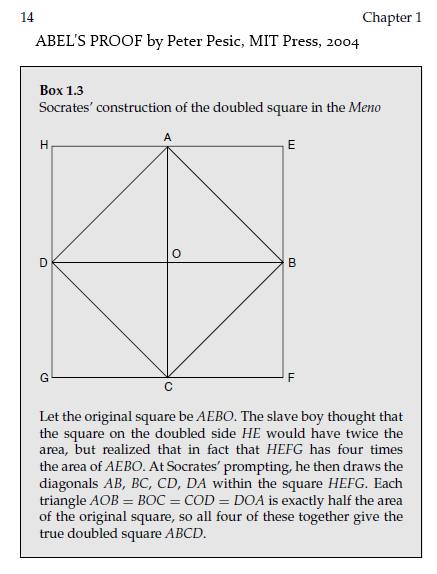
Plato's Diamond
The above version by Peter Pesic is from Chapter I of his book Abel's Proof , titled "The Scandal of the Irrational." Plato's diamond also occurs in a much later mathematical story that might be called "The Scandal of the Noncontinuous." The story—
Paradigms"These passages suggest that the Form is a character or set of characters common to a number of things, i.e. the feature in reality which corresponds to a general word. But Plato also uses language which suggests not only that the forms exist separately (χωριστά ) from all the particulars, but also that each form is a peculiarly accurate or good particular of its own kind, i.e. the standard particular of the kind in question or the model (παράδειγμα ) [i.e. paradigm ] to which other particulars approximate…. … Both in the Republic and in the Sophist there is a strong suggestion that correct thinking is following out the connexions between Forms. The model is mathematical thinking, e.g. the proof given in the Meno that the square on the diagonal is double the original square in area." – William and Martha Kneale, The Development of Logic , Oxford University Press paperback, 1985 Plato's paradigm in the Meno—
Changed paradigm in the diamond theorem (2×2 case) —
Aspects of the paradigm change— Monochrome figures to Areas to Continuous transformations to Euclidean geometry to Euclidean quantities to The 24 patterns resulting from the paradigm change—
Each pattern has some ordinary or color-interchange symmetry. This is the 2×2 case of a more general result. The patterns become more interesting in the 4×4 case. For their relationship to finite geometry and finite fields, see the diamond theorem. |
Related material: Plato's Diamond by Oslo artist Josefine Lyche.
“Plato’s Ghost evokes Yeats’s lament that any claim to worldly perfection inevitably is proven wrong by the philosopher’s ghost….”
— Princeton University Press on Plato’s Ghost: The Modernist Transformation of Mathematics (by Jeremy Gray, September 2008)
"Remember me to her."
— Closing words of the Algis Budrys novel Rogue Moon .
Background— Some posts in this journal related to Abel or to random thoughts from his birthday.
Friday, May 6, 2011
Theme and Variations
— Richard Powers, "The Perpetual Calendar," from The Gold Bug Variations , 1991
See also, from last All Hallows' Eve, "Diamond Theorem in Norway."
Tuesday, November 2, 2010
A Dozen Pairs of Opposites —
24 graphic patterns arranged in space
as 12 pairs of opposites
Click image for an illustration of how the above labeling was derived.
For further background, see Cases of the Diamond Theorem
and recent art by Josefine Lyche of Norway.
Sunday, July 29, 2007
Sunday July 29, 2007
| Nordic Truth: | Jewish Fiction: |
| Snowball | In Hell |
| From The New York Times in 2005:
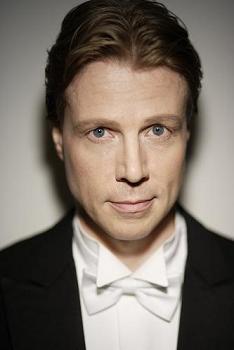 “HE’S the hottest conductor you’ve never heard of…. In music, as in most other pursuits, one person’s misfortune can be another’s opportunity. Many a podium career has been built on successful substitutions…. typically, the process is cumulative and measured. In Mr. Remmereit’s case, it seems a sort of spontaneous combustion…. he seems destined for big things, and soon. Regarding his sudden change in stature, he spoke as if from afar. ‘The snowball has reached such a size that it has started to roll,’ he said matter-of-factly…. ‘It’s terrifying when it happens,’ he said, ‘but I can’t tell you how naively happy I am when it goes well. These are such major steps that I wasn’t even hoping for a few weeks ago.’ ARILD REMMEREIT (pronounced AHR-eeld REMM-uh-right, with the r’s heavily rolled) was born in a village in Norway, between Bergen and Trondheim, and has lived in Vienna since 1987. Slim and fresh-faced at 43, he has had a busy but low-level career in Europe…. So here he was, on April 15, conducting the Pittsburgh Symphony… in a vintage… Germanic program…. Wagner’s ‘Siegfried Idyll,’ Schumann’s Fourth Symphony and Brahms’s Second Piano Concerto….” Württemberg Philharmonic February 2004 Arild Remmereit as a guest conductor: ‘As when the sun rises in the North.’ The Philharmonics and their brilliant guest conductor fetched the mind-blowing, tempting and exciting Scandinavia. It was like a lucky strike to see the Norwegian conductor on stage with the Philharmonic. When he conducts the Dane Nielsen, the Finn Sibelius and the Norwegian Grieg, one can really feel that this man has the locally marked music floating in his blood.” |
From The New York Times today: Discussion of
a new novel: 
Variations on An interview with Henry Grinberg conducted by James R. Oestreich: “For those who find inspiration and edification in great art, it is always painful to be reminded that artists are not necessarily admirable as people and that art is powerless in the face of great evil. That truth was baldly evident in Nazi Germany and in the way the regime used and abused music and musicians, to say nothing of the way it used and abused human beings of all kinds. [A new novel touches on] these issues…. In Variations on the Beast (Dragon Press), Henry Grinberg, a psychoanalyst, posits Hermann Kapp-Dortmunder, a powerful maestro, as a fictional rival of Wilhelm Furtwängler (whose qualms about working under the regime he does not share) and Herbert von Karajan (whose vaulting ambition he does).” GRINBERG: “And it soon occurred to me… that, my God, a lot of the famous, the notable, the moving, the magnificent composers in the 18th and 19th centuries and earlier were Germans. And I tried to understand, how did such a nation turn out to be so bestial and cruel, so indifferent to the suffering of others? And I have no explanation for it. As a practicing psychoanalyst, I can see individual expressions of rage and their causes and their so-called justifications. But for a whole nation to be consumed, to be seduced by an overwhelming idea– well, there are rationalizations, I guess, but not explanations. There’s no forgiveness for this. And I tried to put together a story of a person who was a participant and a causer of these kinds of things…. So I sort of poured my feelings of contempt and rage into the character I was devising. And I have to admit, after having been psychoanalyzed myself in preparation for the training, that something of Hermann Kapp-Dortmunder exists in me. I shudder to think that this may be so, but I have to accept the possibility. Murderous thoughts may have occurred to me, but, thank God, I’ve never killed anyone.” |
Friday, October 7, 2005
Friday October 7, 2005
Oslo Connection
Today is the birthday of Oystein Ore (1899-1968), Sterling Professor of Mathematics at Yale for 37 years, who was born and died in Oslo, Norway. Ore is said to have coined the term “Galois connection.” In his honor, an excerpt dealing with such connections:
Automorphisms and strongly invariant relations (pdf)
